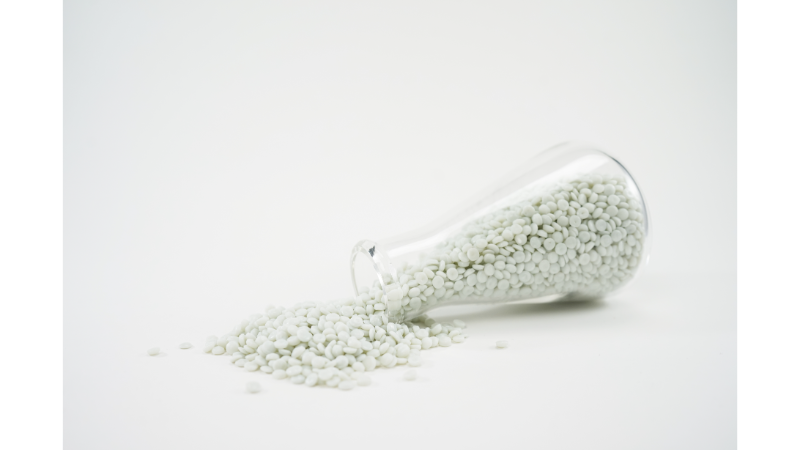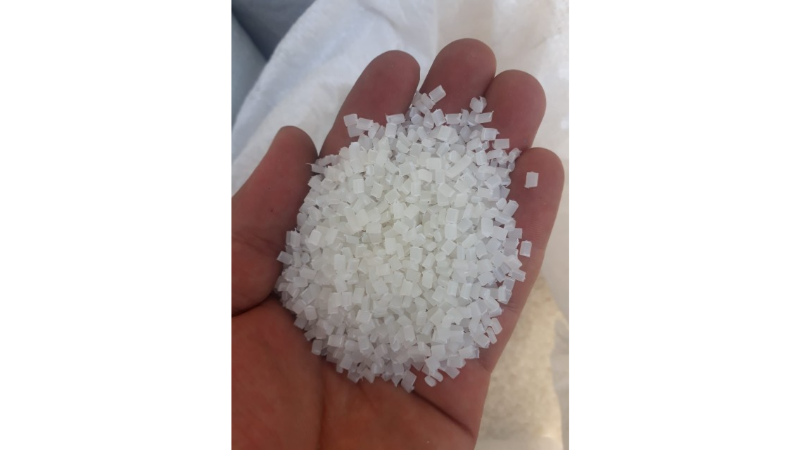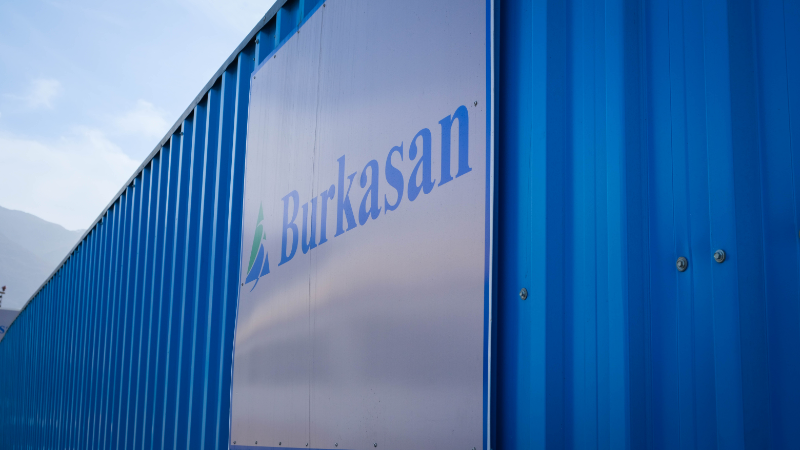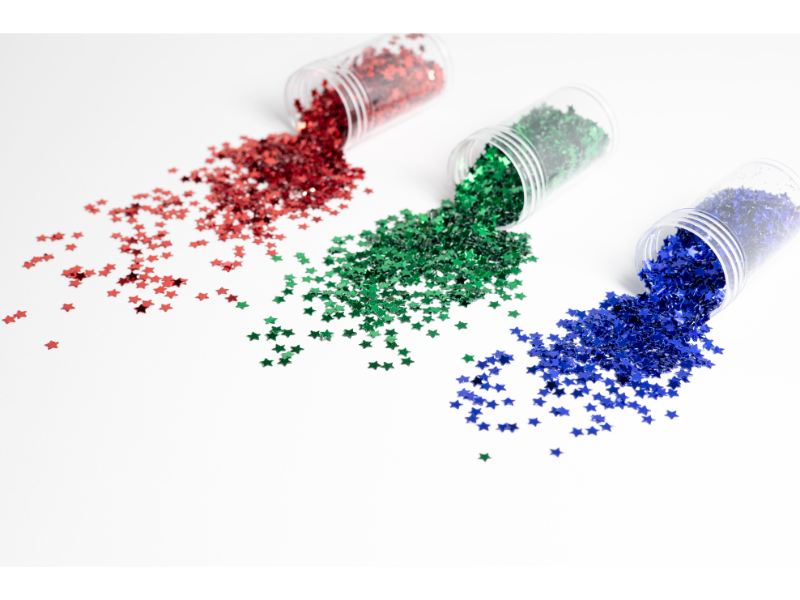Plastic granules form the backbone of the modern recycling and manufacturing industries. These small, bead-like pieces of plastic are integral to producing new products, reducing environmental impact, and driving the circular economy. As sustainability becomes a global priority, understanding plastic granules and their journey from waste to reusable raw material is more important than ever.
These granules, derived from recycled plastics, offer a practical and scalable solution for industries seeking to minimize their ecological footprint while maintaining production efficiency. From packaging to automotive parts, construction materials to textiles, plastic granules are reshaping how industries approach raw material sourcing.
In this article, we’ll explore what plastic granules are, how they are produced, and why they matter. We’ll also take a closer look at how industry leaders like BURKASAN are innovating in the field transforming plastic waste into high-quality raw materials and providing sustainable, reliable solutions for businesses across multiple sectors. Through advanced technologies and a firm commitment to environmental responsibility, companies like BURKASAN are paving the way for a greener, more circular future.
Table of Contents
- What Are Plastic Granules?
- The Plastic Granule Industry Explained
- How Plastic Granules Are Made
- Types of Plastic Granules
- The Role of Plastic Granulators
- Advantages of Plastic Granules in Recycling
- Granule Plastic Prices
- BURKASAN’s Impact in the Plastic Granule Industry
- Frequently Asked Questions (FAQ)
- Conclusion
What Are Plastic Granules?
Plastic granules are small, uniform pellets typically made from either post-consumer plastic waste or virgin plastic material. These granules serve as the fundamental raw material used in the manufacturing of a wide range of plastic products, from packaging and automotive components to household goods and construction materials.
They are most commonly produced through mechanical recycling processes, where plastic waste is collected, sorted, cleaned, shredded, and then melted down to form new pellets. Alternatively, more advanced chemical recycling methods are used to break down plastic polymers at a molecular level, allowing even contaminated or mixed plastics to be converted into high-quality granules.

Thanks to their compact and uniform structure, plastic granules simplify transportation and storage. They are also highly efficient for further processing methods such as injection molding, extrusion, and blow molding. This format helps manufacturers ensure consistent quality, color, and mechanical properties in the final products, making plastic granules a vital component in large-scale, sustainable production systems.
The Plastic Granule Industry Explained
The plastic granule industry stands at the heart of modern sustainability efforts, playing a vital role in both waste management and the circular economy. It transforms end-of-life plastic waste into valuable raw materials, turning what was once an environmental burden into an economic asset.
Companies in this sector manage the entire journey of plastic waste from collection and sorting to cleaning and processing. They use advanced technologies to produce small, uniform plastic pellets known as granules. These granules are then supplied as raw materials to manufacturers across a wide range of industries, including packaging, automotive, textiles, and construction. By using recycled granules, these industries reduce their environmental footprint while also gaining cost efficiency and production consistency.
Plastic granules offer practical advantages such as ease of transport, storage, and compatibility with production techniques like injection molding, extrusion, and blow molding. Their standardized form ensures consistent quality in final products. This makes them a preferred choice in industrial manufacturing.
How Plastic Granules Are Made
The production of plastic granules is a multi-step process that transforms waste into high-value raw materials, essential for sustainable manufacturing. Here’s a closer look at how plastic granules are made:
- Collection: The first step in granulate production is the collection of unused or discarded plastics. This waste can be post-industrial waste, post-consumer plastic products (bottles, containers, packaging) or scrap materials. The success of recycling depends on the quality of collection at this stage.
- Sorting: Collected plastic waste is sorted according to type (e.g. PE, PP, PET) and color. This is because processing different types of plastics together can reduce quality. It can lead to undesirable results in granule production. Both manual and automatic sorting systems are used at this stage.
- Cleaning: The separated plastic materials are thoroughly washed in washing pools or special machines. This process removes dust, dirt, oil, labels, and chemical residues.
- Shredding: The washed plastics are crushed into small pieces in crushing machines to make them easier to process. These pieces are called “flakes”. These homogenized particles are dried before proceeding to the extrusion stage.
- Melting: The crushed plastic parts are melted at high temperatures and processed in machines.
- Extrusion: Melted plastic strips are formed into small particles of the desired size in cutting machines. These particles are called plastic granules. They are packaged for use in new production processes.

Each of these stages plays a vital role in ensuring the quality and consistency of the final granules. The entire process helps divert plastic waste from landfills and oceans. It also provides manufacturers with a reliable and sustainable alternative to virgin plastic. Industries and governments are placing greater emphasis on eco-conscious production. As a result, this method is becoming an increasingly important tool in global environmental efforts.
Types of Plastic Granules
There are various types of plastic granules, each with specific properties and uses:
- Polyethylene (PE) Granules – Used in packaging films and containers.
- Polypropylene (PP) Granules – Common in automotive and household goods.
- PET Granules – Ideal for beverage bottles and textiles.
- PVC Granules – Used in construction materials like pipes.
The Role of Plastic Granulators
Plastic granulators are specialized machines designed to break down plastic waste into smaller, more manageable particles. This is an essential first step in the recycling process. It ultimately leads to the production of plastic granules. These machines use rotating blades to cut plastic materials into flakes or chips. These flakes or chips can then be cleaned, melted, and reformed into new granules.
Granulators come in various sizes, designs, and capacities to accommodate a wide range of plastic types and volumes. Plastic comes in many forms. These include lightweight films and bottles, as well as rigid containers and industrial scrap. Each form requires a different granulation approach. Compact granulators are suitable for small-scale operations. In contrast, industrial-scale models feature automated feeding and dust extraction systems for continuous processing.
Their role in the mechanical recycling process is critical. They not only reduce the size of plastic waste, but also influence the quality and consistency of the final granules. Well-maintained, high-performance granulators produce clean, evenly sized flakes that melt more uniformly. This ensures that the end product meets both technical standards and aesthetic expectations.
Moreover, advancements in granulator technology have led to energy-efficient and low-noise models. These improvements make granulators more sustainable and suitable for modern recycling facilities. In essence, plastic granulators form the backbone of any efficient recycling system. These raw materials are used in countless manufacturing sectors.
Advantages of Plastic Granules in Recycling
Plastic granules offer several advantages:
- Resource Efficiency: They minimize the need for virgin plastic.
- Cost Reduction: Lower production and material costs for manufacturers.
- Consistency: Ensures uniform quality in production.
- Sustainability: Encourages the reuse of materials and reduces landfill waste.
These benefits make granulation an essential process in the plastic recycling value chain.
Granule Plastic Prices
Granule plastic prices can vary significantly depending on several factors. The type of raw material used (e.g., PE, PP, PET), the quality of the granules (virgin or recycled), market demand, and production volume all directly influence pricing.
- Type of raw material: Different plastics such as polyethylene (PE), polypropylene (PP), or polystyrene (PS) have different price ranges.
- Recycling status: Recycled granules are generally more affordable than virgin (raw) granules.
- Market conditions: Factors such as crude oil prices, exchange rates, and supply-demand balance can cause price fluctuations.
- Color and additives: Uncolored and additive-free granules are typically more cost-effective.
On the other hand, specialized additives can increase the price.
Granules can be custom-formulated based on industry needs. Therefore, the most accurate pricing is usually determined by requesting a quote. This quote depends on factors such as quantity, quality, and intended use.
BURKASAN’s Impact in the Plastic Granule Industry
With more than 25 years of experience, Burkasan has built strong expertise in plastic recycling.
Today, it stands as one of the leading and most reliable companies in the sector in Turkey. It operates 13 integrated facilities equipped with advanced technologies. Thanks to these facilities, thousands of tons of plastic waste are recycled every year. In this way, waste is recycled back into the industry. At the same time, plastic waste that harms the environment is disposed of. Thus, added value is provided to the national economy.
Burkasan’s field of activity is not limited to collecting and recycling plastic waste. The company offers the recycling process as a service. It develops customized recycling solutions according to the needs of different sectors. Operates in many fields, especially in the packaging, automotive, textile, agriculture, construction and white goods sectors. It determines special strategies for each area where waste is found. Then, it successfully implements these strategies in practice.

The main vision of the company is to make environmental sustainability a core principle. This vision aligns closely with the “zero waste” target as a long-term business model. Within the framework of this vision, Burkasan not only provides raw materials.
Burkasan produces high performance granules that comply with quality standards. It also contributes to environmental gains such as energy saving and resource efficiency. Burkasan carries out all its processes from production to logistics with environmentally friendly principles. In this way, it fulfills its responsibility towards the environment. At the same time, it upholds its commitment to its business partners at the highest level.
Frequently Asked Questions (FAQ)
What is plastic granulate?
Plastic waste is first crushed and melted. Then, it is turned into small granules to be reused as raw materials.
Where is granulated plastic used?
It is used in packaging, automotive, construction, textile and household products.
Does recycling plastic granules benefit the environment?
Yes, because it reduces the amount of waste, saves energy and reduces carbon emissions.
Does Burkasan produce plastic granules?
Yes. Burkasan produces granules by recycling plastic waste in 12 integrated facilities.
What is the difference between PCR and PIR granules?
PCR (Post-Consumer Recycled) products are obtained from post-consumer waste. PIR (Post-Industrial Recycled) products are produced from production waste.
How is plastic granules produced?
It is a process that includes collection, sorting, washing, crushing, melting and cutting.
Conclusion
As a result, plastic granules is not only a reusable raw material. It is also a strategic step towards environmental protection. Processing waste in a controlled manner is essential for sustainability. Recycling it back into industry contributes significantly to the protection of nature. At the same time, it offers economic advantages to businesses.
At this point, granule production has become a concrete indicator of environmentally friendly production approach. This process is carried out with the right methods and a professional approach. As a result, it optimizes the use of resources. It also contributes to reducing the carbon footprint.
Burkasan makes plastic recycling more efficient with its advanced infrastructure. Thanks to its expertise in the sector, it makes this process more effective. It adds value to industry and nature with its leadership in granule production. In this way, it becomes a reliable solution partner for businesses.
Choosing the right partner is important for companies that act with recycling awareness. This choice is the most powerful way to protect the present. At the same time, it safeguards the future.

